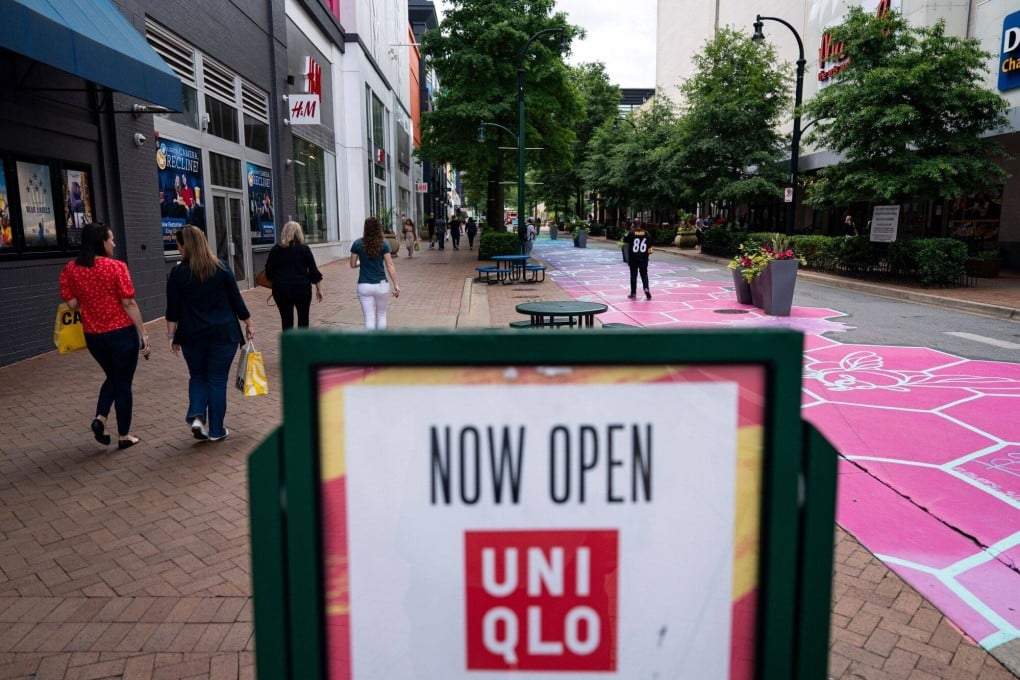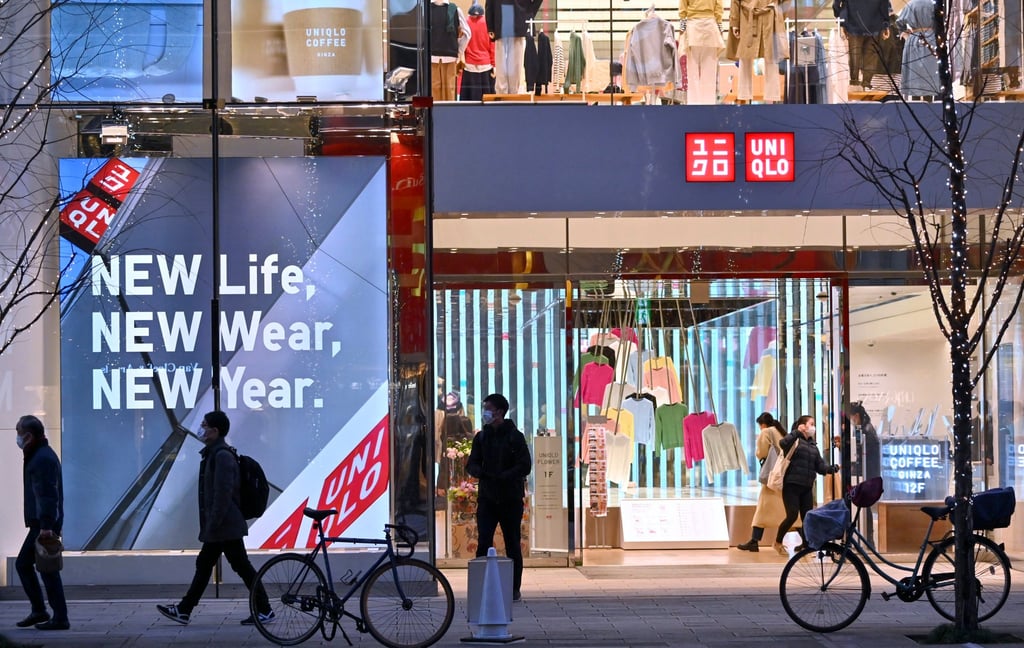Uniqlo’s hi-tech checkout charts path to ¥10 trillion in sales
- The time-saving method can tally up purchases at one go due to radio-frequency chips embedded within each item’s price tag

Fast Retailing, Asia’s biggest apparel business and parent company of Uniqlo, is betting on barcode-less checkouts, vast data collection and other technologies to reach its target of ¥10 trillion (US$63.6 billion) in annual sales.
The time-saving method, which can tally up purchases at one go due to radio-frequency chips embedded within each item’s price tag, is the brainchild of Takahiro Tambara, the company’s chief information officer. It is the kind of innovation he is planning to introduce into every step of the company’s supply chain and sales operations.
Fast Retailing, which also owns GU, Theory and other brands, is riding a wave of consumer demand for simple, casual styles. Its second stab at overseas expansion in Western markets is going much better than its first about a decade ago, when it had to close stores from a lack of brand recognition. This time, it is seeing revenue in the US and Europe grow quickly despite competition from low-cost brands such as online retailer Shein.
“We’re going to invest aggressively in digital, and want to keep hiring talented people,” Tambara said on the sidelines of a retail conference in Singapore. “At the same time, we don’t just want to embrace technology for the sake of technology.”
That pace of growth, especially in Europe, puts Fast Retailing’s supply chain at risk of falling behind, according to Tambara – that is where the retailer is building its biggest-ever warehouse. Plus, there still some mundane tasks, such as checking delivery of stock to stores, that could become more efficient using wireless tags, he added.

Although Tambara declined to give specific numbers, he said spending on new tools and services has roughly doubled since 2017. More than 700 programmers and staffers work on production, supply chain, e-commerce and retail innovations under his group.